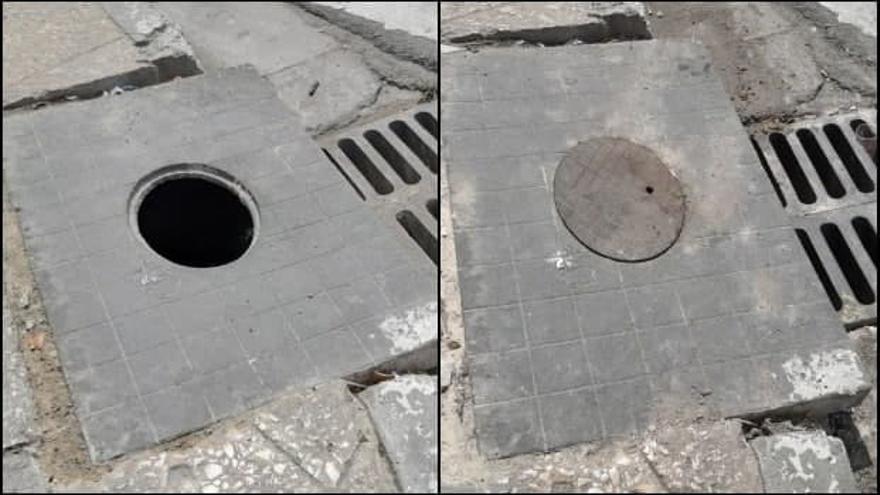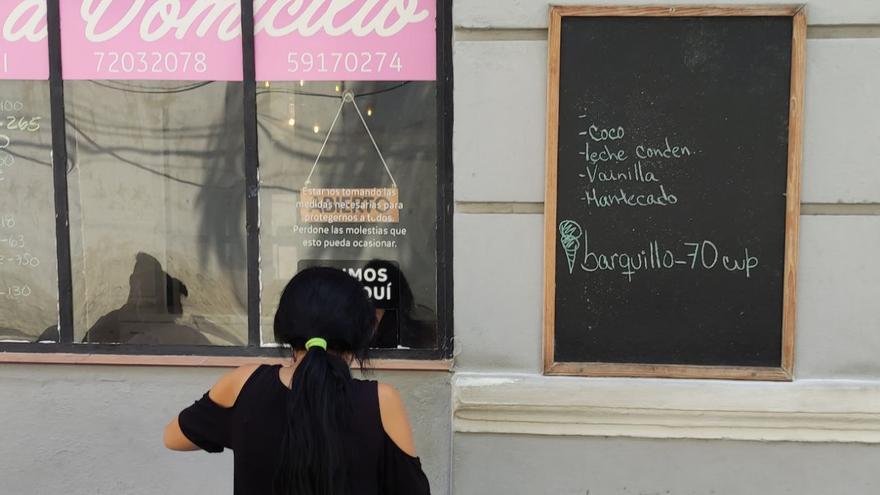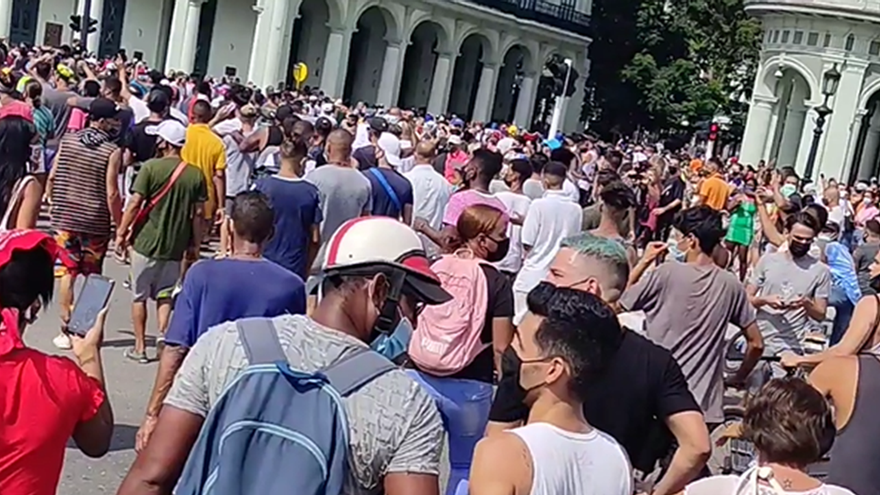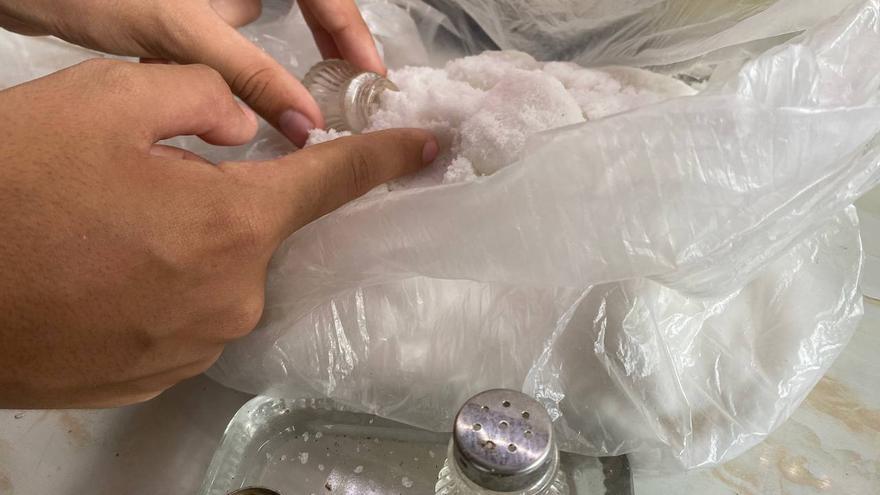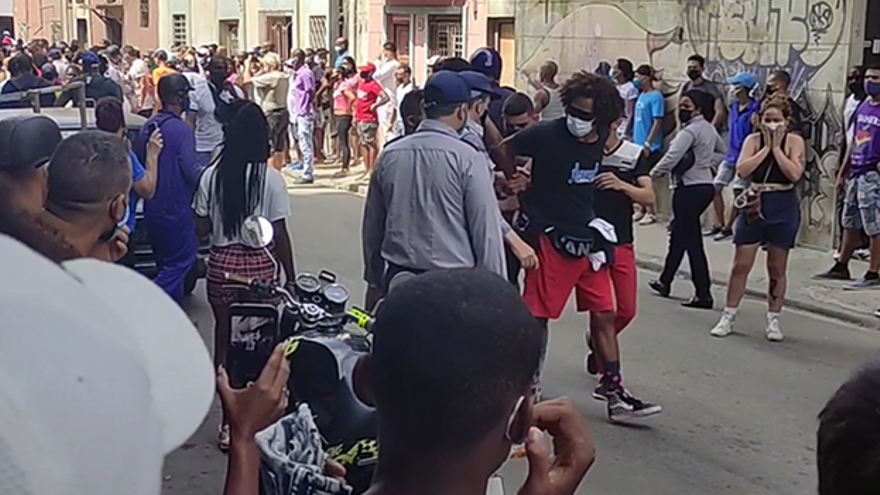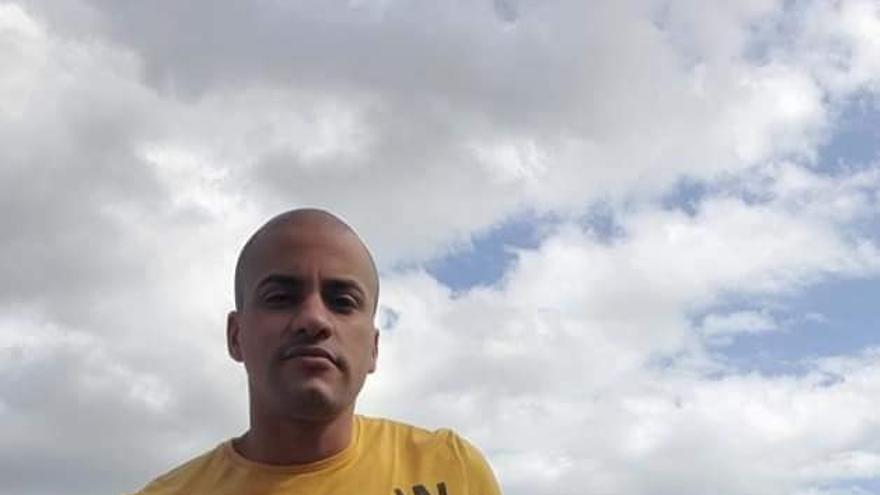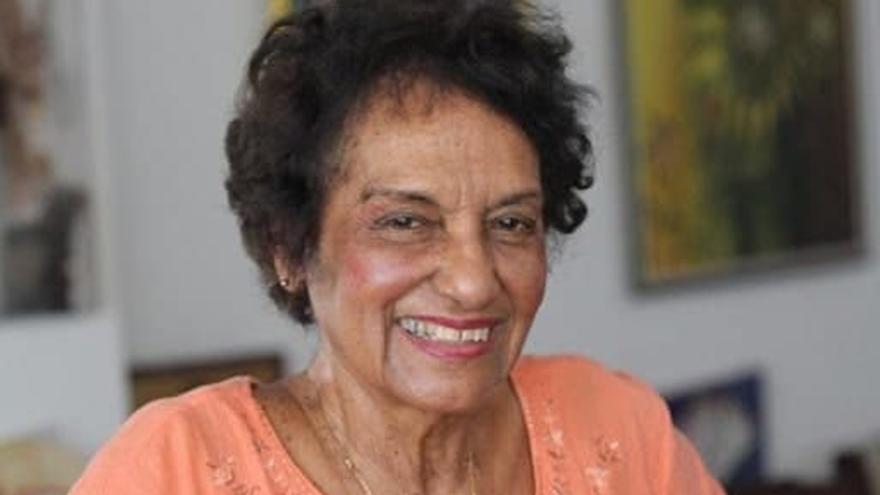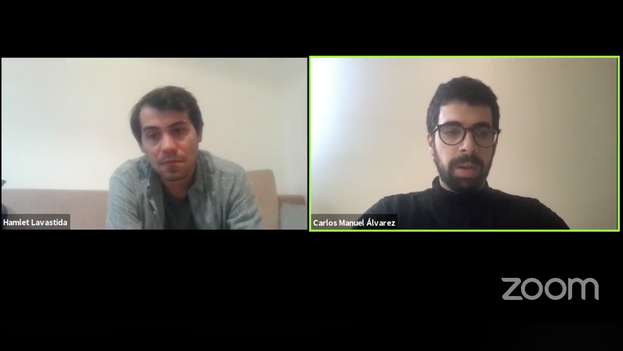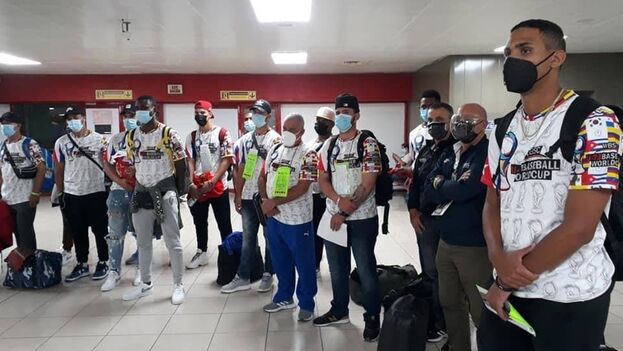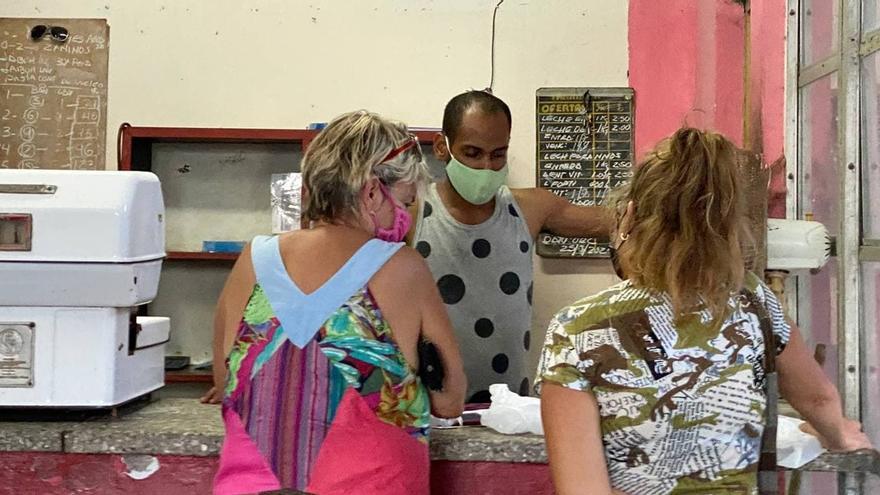
![]() 14ymedio, Juan Diego Rodriguez, Havana, October 7, 2021 — “In September they didn’t give us anything. Only eggs and some disgusting ground meat. One tablespoon for two people. Not even my dogs would eat it,” complains Migdalia, a housewife in Central Havana who foresees no end to the ongoing struggles to stock her pantry. Public frustration is growing ever more widespread. Every day sees another announcement of a delay, a substitution or a “failure” that prevents products ranging from chicken and rice to basic supplies such as water and electricity from reaching consumers’ hands.
14ymedio, Juan Diego Rodriguez, Havana, October 7, 2021 — “In September they didn’t give us anything. Only eggs and some disgusting ground meat. One tablespoon for two people. Not even my dogs would eat it,” complains Migdalia, a housewife in Central Havana who foresees no end to the ongoing struggles to stock her pantry. Public frustration is growing ever more widespread. Every day sees another announcement of a delay, a substitution or a “failure” that prevents products ranging from chicken and rice to basic supplies such as water and electricity from reaching consumers’ hands.
In September only eggs were available in some Havana neighborhoods. Others got chicken that was supposed to have arrived in August. In some provinces, such as Santiago de Cuba, only bologna and eggs were being sold, though Interior Commerce Minister Betsy Diaz Velazquez claimed meat was being distributed to everyone, though it was a month late.
At the end of September the minister noted that, several months earlier, there had been a steady supply of chicken which could reach the country in seven to ten days.
“Today, though we have the necessary funds and are able to purchase the product, we have had to wait for as much as fifty days or longer for it to get to Cuba. As a result, the public did not receive August’s supply of chicken until September. And in September there will be a similar delay even though the supplier has already been paid,” she claimed.
Something similar is happening with rice. Plans to provide families with additional pounds of rice over the last few months were cancelled, a continue reading
Diaz had said that in October that families would receive the seven pounds of rice to which they are entitled through the ration book, but delivery of the three additional pounds intended for August and September will be postponed because the product is currently unavailable.
Migdalia, who is on a medically prescribed diet, it also frustrated by the shortage of powdered milk. In late September the Ministry of Food Production announced that, because of delayed deliveries of the product, distribution of the product through the ration system had been changed. Currently, powdered milk is not being provided to people on medical diets.
The ministry also noted that on September 25 monthly sales of the product for children seven-years-old and younger had been concluded in Havana.
The only way to get many foods such as milk is to buy them on the black market, where it sells for about 1,000 pesos a kilo. Sellers charge 250 pesos for a 2.5-kilo of packaged chicken while a ten-pound package goes for twice that.
Eggs are another product for which black market prices are sky-high. “When butcher shops get their deliveries, you can find a carton of eggs on the informal market for 350 pesos (fourteen dollars at the official exchange rate). But if you can get it through the ration book, the same amount goes for 400 pesos,” explains Henry, a resident of Havana’s Playa district.
Along with food shortages, there are also continual disruptions in utility services. The Cuban Electrical Union announced on Thursday that power outages on the previous day were due to “a significant increase in demand” and because Unit 6 at the Maximo Gomez power plant had gone out of service. The state-owned company added that it was anticipating electrical service to be impacted during peak hours. It was not an isolated incident. Beginning in June customers were without power throughout much of the summer, unable to turn on even a simple fan during the hot days and nights.
But the island’s water isn’t flowing either. The company, Waters of Havana, announced on Thursday that there would be service interruptions in some areas between 8:00 AM and 6:00 PM due to maintenance and repair work on the pipelines and equipment at Meireles Viejos and machinery at Tower 19.” Boyeros and Tenth of October are the areas to be most affected.
____________
COLLABORATE WITH OUR WORK: The 14ymedio team is committed to practicing serious journalism that reflects Cuba’s reality in all its depth. Thank you for joining us on this long journey. We invite you to continue supporting us by becoming a member of 14ymedio now. Together we can continue transforming journalism in Cuba.

